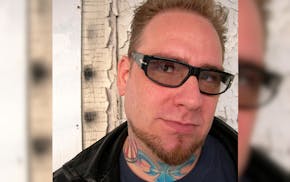James E. Burke, whose leadership of Johnson & Johnson during the Tylenol poisonings in the 1980s is regarded as a textbook example of how to handle a public relations crisis, died Friday at a health care facility near New Brunswick, N.J., his family said. He was 87.
As Johnson & Johnson's chairman and chief executive from 1976 until 1989, Burke oversaw a vast expansion of the company.
But Burke is best known for his handling of the Tylenol crisis in 1982, when seven people in the Chicago area died after taking capsules of Extra-Strength Tylenol that had been laced with cyanide.
In 1986, another poisoned capsule killed a woman in New York. The crimes have never been solved.
The company spent more than $100 million recalling 32 million bottles of Tylenol capsules from store shelves in 1982, and even more on another recall in 1986. In an unusual move, Burke placed himself before news cameras and apologized.
Asked by a reporter if Burke was sorry the company had not acted sooner, he replied, "Yes, indeed I am."
"That taught corporations a lesson about candor," John F. Welch Jr., the former chairman and chief executive of General Electric, said Monday. "It was a huge legacy to leave: When you have a problem, deal with it openly, up front."
Robert Newton, who with his wife, Joyce, founded Hoosier Racing Tire, the Indiana company whose tires have become fixtures at car-racing tracks around the country, died Sept. 26 at his home in Lakeville, Ind. He was 85.
Newton died of complications of a stroke, said Hoosier spokesman Dennis Sherman.

Whitey Herzog, who managed Cardinals vs. Twins in 1987 World Series, dies

Official who helped MSHSL on pioneering ventures dies at 89

Former 'KQRS Morning Show' prankster Lee Siegfried, aka Crazy Cabbie, dies at 55

Richard Serra, who recast sculpture on a massive scale, dies at 85
